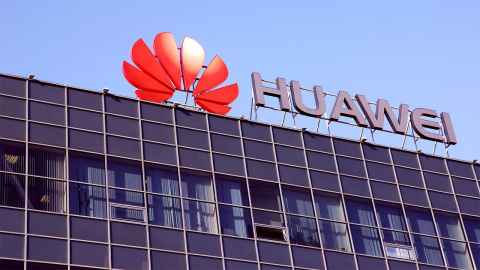Forest missed for the trees in Huawei controversy
14 February 2020
The UK has given Huawei the go-ahead for 5G. If it proves cutting edge, the market will be the arbiter - not shadowy intelligence agencies, writes Gehan Gunasekara.

The decision by the UK to permit Chinese technology company Huawei to operate there, subject to specified safeguards and constraints, suggests that British Prime Minister Boris Johnson may not be Donald Trump’s henchman after all.
Indeed, it provides a splendid example of the fallacy of the US President’s “America First” policy. Trump cannot have it both ways. If every other nation were to adopt its own “country first” policy then it is natural that traditional friendships and alliances would be replaced by naked self-interest. Countries such as the UK can be expected to align their interests with China should this be advantageous economically. Threats and cajoling by the US are unlikely to dissuade such re-alignments and the “deals” favoured by Trump require horse-trading on the part of both sides: one cannot simply impose deals on other nations.
The reality is that there are now two global economic superpowers. Although the US remains the world’s sole military superpower, this is arguably less important since the end of the Cold War with soft power now the main lever of influence. New Zealand’s own controversy over allowing Huawei to provide 5G technology here has arisen against the horns of this dilemma. Although no longer part of the ANZUS military alliance, New Zealand is still part of the “Five Eyes” intelligence network together with the US, Australia, Canada and the UK. Many have questioned the value of remaining within it, particularly as the network failed to warn us of the French actions in sinking the Rainbow Warrior in Auckland harbour. A more nuanced approach, however, might be to remain within the network but seek to establish clearer definition of its scope and function. For instance, what is the overlap between “national security” and economic interests?
Until it was repealed by the fourth Labour Government in 1987, New Zealand had a piece of legislation called the Economic Stabilisation Act 1948. This pernicious law was used by then Prime Minister Robert Muldoon to impose a nationwide wage and price freeze between 1982 and 1984, with Muldoon famously remarking you could use the Act to carry out any government policy that seemed expedient. But is the Telecommunications (Interception Capability and Security) Act 2013 another such intrusive all-encompassing law?
Part three of the Act requires the minister in charge of the GCSB, currently Andrew Little, to certify communication network providers as posing no risk to New Zealand. The security of our communications infrastructure is certainly a matter of national security, no less than is the integrity of our biosecurity procedures. The minister, though, is constrained by the advice he receives which, of necessity, is not subject to public scrutiny.
Countries such as the UK can be expected to align their interests with China should this be advantageous economically. Threats and cajoling by the US are unlikely to dissuade such re-alignments...
As a consequence, a perception arises of inherent bias: since the GCSB is part of the Five Eyes network led by the US, that nation’s economic interests, rather than security concerns, may be at play. What is lacking here is a robust means for testing bald assertions without compromising intelligence agencies’ techniques and sources. In contrast, most other spheres of economic operation do have such procedures.
For example, the World Trade Organization (WTO) has rules and procedures to ensure customs quarantine measures do not constitute a trade barrier. Thus, long-standing Australian bans on New Zealand apples on disease-control grounds were found not to be justified by a panel of experts. This may be difficult in the intelligence field but, at the very least, the Five Eyes network must similarly be subject to some independent evaluation where it seeks to influence government policies. This could be through peer review of their opinions by experts sworn to secrecy or otherwise.
A further area of concern is preventing overseas control of strategic areas of the economy as well as ensuring no one player achieves dominance. This is addressed through the United Kingdom’s restricting Huawei to a 30 percent cap in its share of the market. Similar quandaries have been faced by the European Union, for instance, in its over-reliance on natural gas from Russia. Huawei’s exclusion from certain “strategic” areas such as nuclear power and defence industries is valid and aligns with China’s own 2017 Cybersecurity Law.
The UK’s Huawei decision, while not ideal, allows that company to prove the efficacy of its supposed revolutionary advances in the 5G field. If its technologies are indeed at the cutting edge, as it claims, the market will then be the ultimate arbiter as opposed to shadowy intelligence agencies whose advice is not subject to critical evaluation.
Gehan Gunasekara is an associate professor in commercial law at the Business School and chair of Privacy Foundation New Zealand.
This article reflects the opinion of the author and not necessarily the views of the University of Auckland.
Used with permission from Newsroom Forest missed for the trees in Huawei controversy 14 February 2020.
Media queries
Alison Sims | Research Communications Editor
DDI 09 923 4953
Mob 021 249 0089
Email alison.sims@auckland.ac.nz